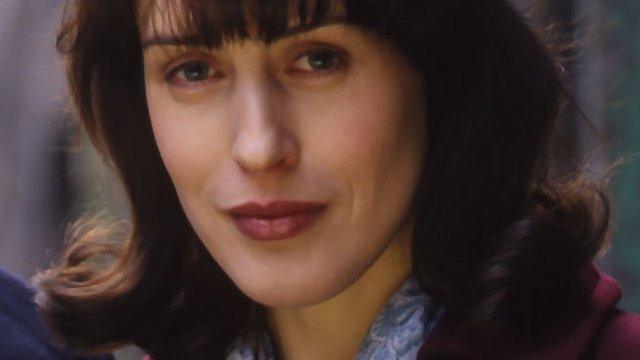TV classic's radio revival to reveal what Our Friends in the North did next
- Published
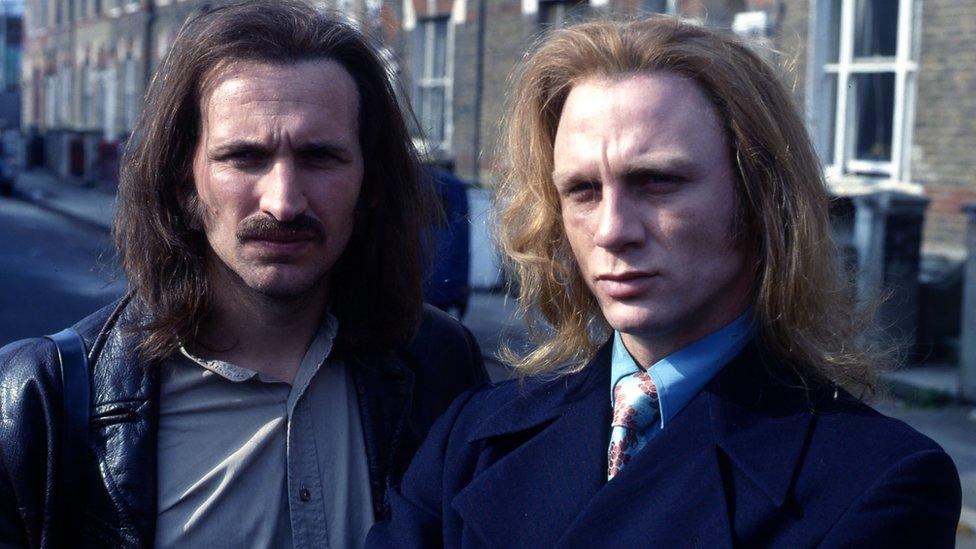
The future stars of Doctor Who and James Bond - Christopher Eccleston and Daniel Craig - in Our Friends in the North
Our Friends in the North is regarded as one of the greatest British TV dramas ever made and launched the careers of its cast including Christopher Eccleston and Daniel Craig. It has now been adapted for the radio and brought up to date with a new episode set in 2020.
The original series was a landmark of British television, weaving together the fortunes of four friends from Newcastle over nine episodes set between 1964 and 1995.
When the show aired in 1996, it made stars of Eccleston as idealistic Nicky, Gina McKee as pragmatic Mary, Mark Strong as upwardly mobile Tosker and Daniel Craig as downtrodden Geordie.
"I hadn't looked at it for years and years and years," says its writer Peter Flannery, who has now revisited it to adapt it for BBC Radio 4.
"I thought it stood up pretty well. The writing was good, the production was exceptionally good and the strength of the acting has kept it young."
The show's characters were buffeted by state-of-the-nation storylines that painted a bleak picture of a country with rotten political and policing machines.
Much was inspired by real-life events, such as a 1970s bribery scandal involving local politicians in the north-east, a housing developer and a home secretary; and the 1990s Westminster cash for questions affair.
Not much has changed, Flannery believes.
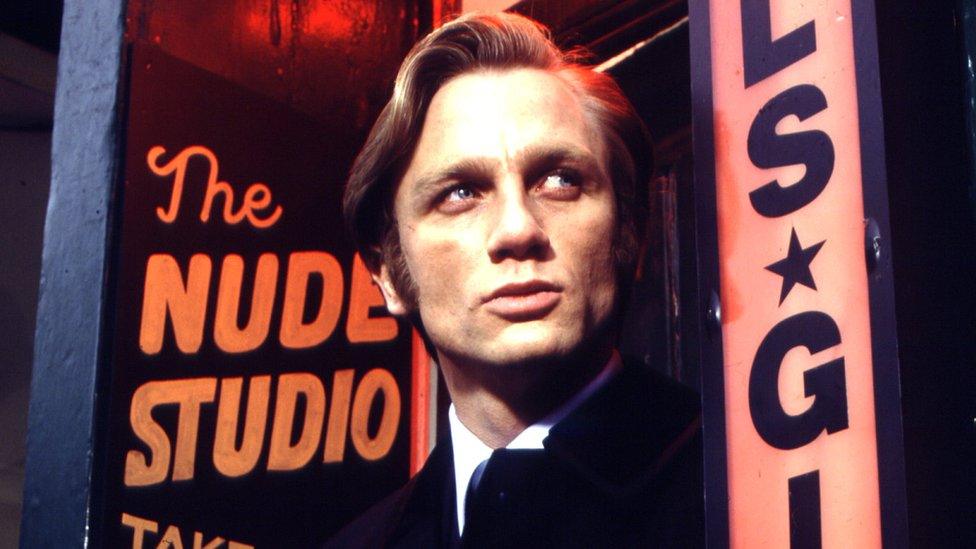
Craig's character Geordie Peacock worked in a Soho strip club in the 1960s
"The major themes of sleaze and corruption in local and national government have never gone away," he says. "I think the spread of pornography and violence towards women have got worse.
"And the thing I still find the most worrying, and I did at the time, is the awful state that the Metropolitan Police is in."
Flannery often described Our Friends in the North as "a posh soap opera with something to say". But he has not written the new episode himself. "I'd finished what I had to say."
Instead, the 10th instalment, which takes the story to 2020, has been penned by Manchester-born writer Adam Usden.
At 33, Usden was too young to appreciate the series when it first went out, but now recognises it as "a stone cold masterpiece".
He says: "The scope and the scale of it is stunning. Not just the timeframe, but that the breadth of the issues that he deals with. At the same time, it's incredibly intimate. Its heart is the focus on these hugely compelling, hugely personal stories.
"It's like a photograph - you've somehow got the background and the foreground in focus at the same time."
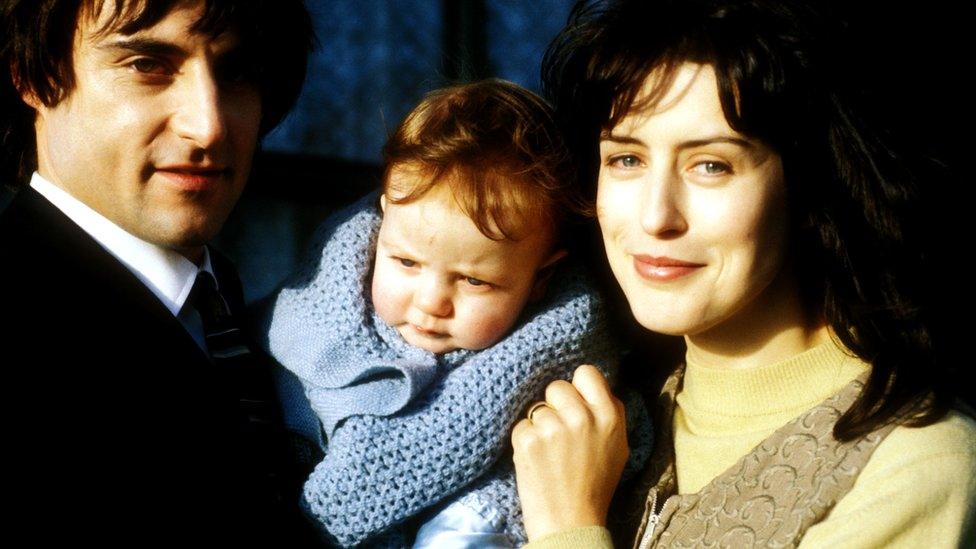
Gina McKee won a Bafta for her role as solicitor-turned-councillor-turned-MP Mary
Writing in The Guardian when the show turned 25 last year, external, Stuart Heritage agreed it had stood the test of time. "Boy, does it hold up: as drama, as a piece of commentary, as a time capsule, as a showcase for young talent."
He added: "At times, watching a show about how bad things were in the last third of the 20th-century from the perspective of 2021 make you want to shout at the characters about how good they have it."
The original episodes took place against the backdrop of a different social or political event, like general elections or the 1984 miners' strike.
In his 2020 book The Age of Static: How TV Explains Modern Britain, Phil Harrison wrote that "the quartet felt like living, breathing representatives of us, as we grappled with the dilemmas of the era".
The show "remains a resonant work to this day", he said, "partly because as it concluded the sense lingered that the generation of baby boomers at its heart hadn't quite finished their upheavals.
"Two decades later - at the EU referendum in June 2016, to be precise - this suspicion would prove to be well founded. The referendum would probably have split the four friends down the middle."
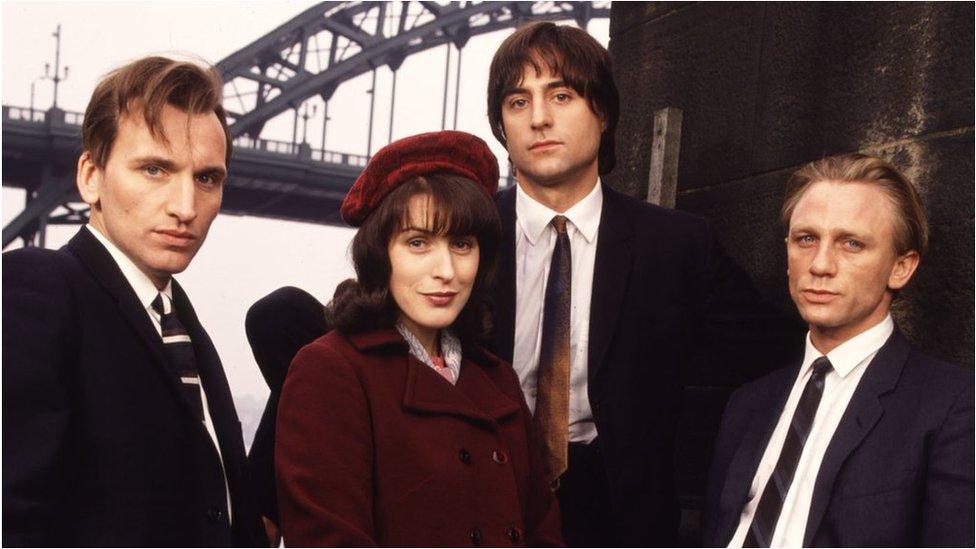
Every episode was set in a different year between 1964 and 1995
It would not be much of a stretch to imagine Nicky and Mary arguing with Tosker over Brexit in the 2020 instalment, with Geordie oblivious that there had been a referendum, but feeling the effects the most.
"Those debates certainly do creep into it," Usden says. "One of the main story threads of this episode follows Tosker's grandson, who was in the last scene of the of the previous series. He has a factory that does shipping parts and has very much been affected by the red tape is coming in."
Like Flannery, Usden has tried to balance the personal and the political. One of the other big themes of the original was about how parents affect - in other words, mess up - their children.
"I wanted to build on this sense of how the previous generation had shaped and impacted the people who had come after them in ways that neither generation always fully understood," he says.
"It was almost the perfect story to be able to pick up 25 years later, and to be able to take those core characters of Tosker, Mary, Nicky and Geordie and show how they had shaped the next generation, sometimes intentionally and lots of times in ways that perhaps they didn't intend."
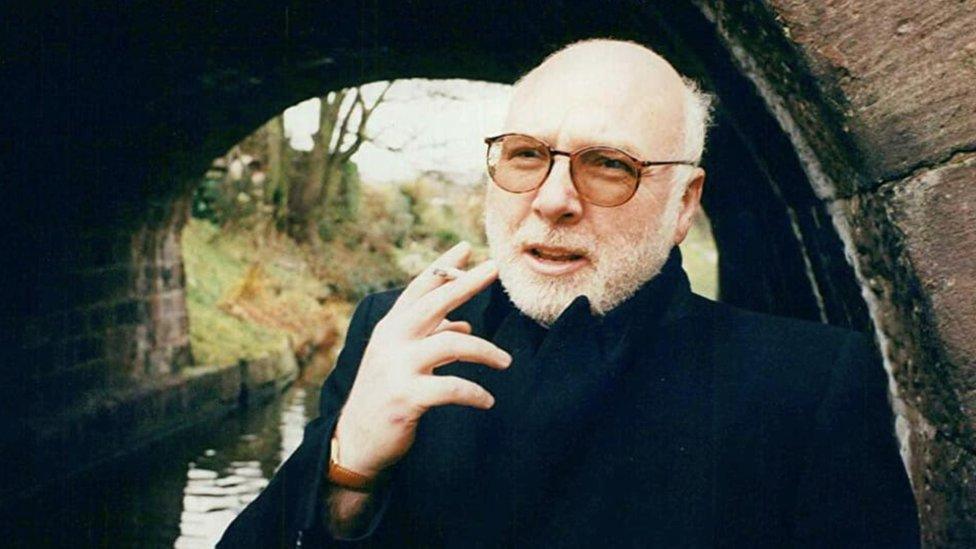
Peter Flannery has gone on to write shows including Inspector George Gently and The Devil's Whore
Flannery says he "never really thought about" what might have happened to his four friends after the series ended.
"When I was asked at the time what happened to Geordie, I think my stock reply was, 'He'll probably be dead in a doorway within a couple of months.'
"He was a busted flush. He's got nothing to sustain him. He's lost all his friends again. But I hadn't really thought that through."
If they are still alive, the foursome would be in their 70s by 2020. But Usden is reluctant to reveal what has become of them in his new episode.
"All of them at the very least are referenced in some way, and throughout, because it's about their influence and their impact on those that have come after them," he says.
"I do absolutely pick up on characters and story threads from the original series, but hopefully in some surprising ways, and perhaps not always the characters or the stories you might expect."
Our Friends in the North is on BBC Radio 4 on Thursdays at 14:15 and on BBC Sounds. The original TV series is on Britbox.
Related topics
- Published26 August 2016
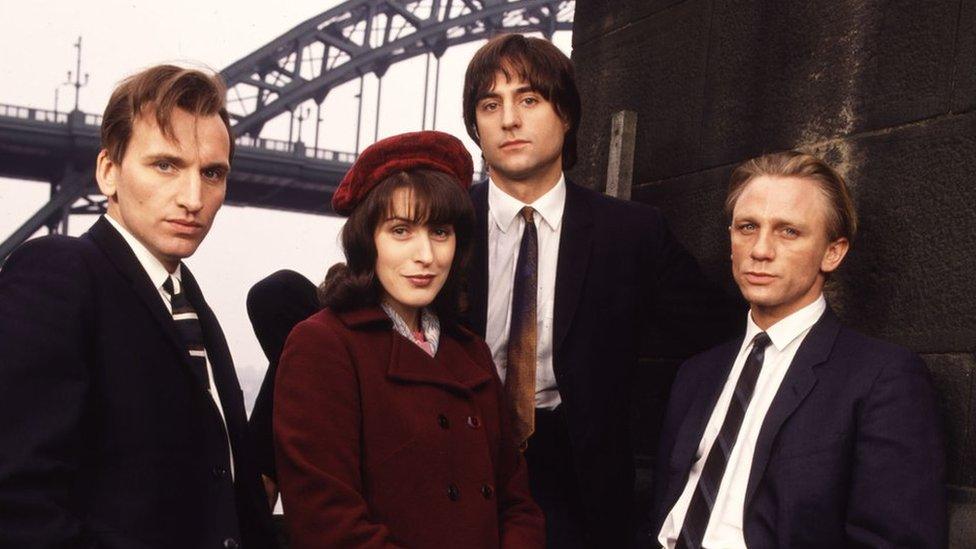
- Published30 July 2015
